A question I am often asked by both Heyer- and non-Heyer readers is “Which is your favourite Georgette Heyer novel?” It’s an excellent question and one which, in the hope of suggesting a book you might enjoy reading during self-isolation because of the Covid-19 pandemic, I will try to answer here.
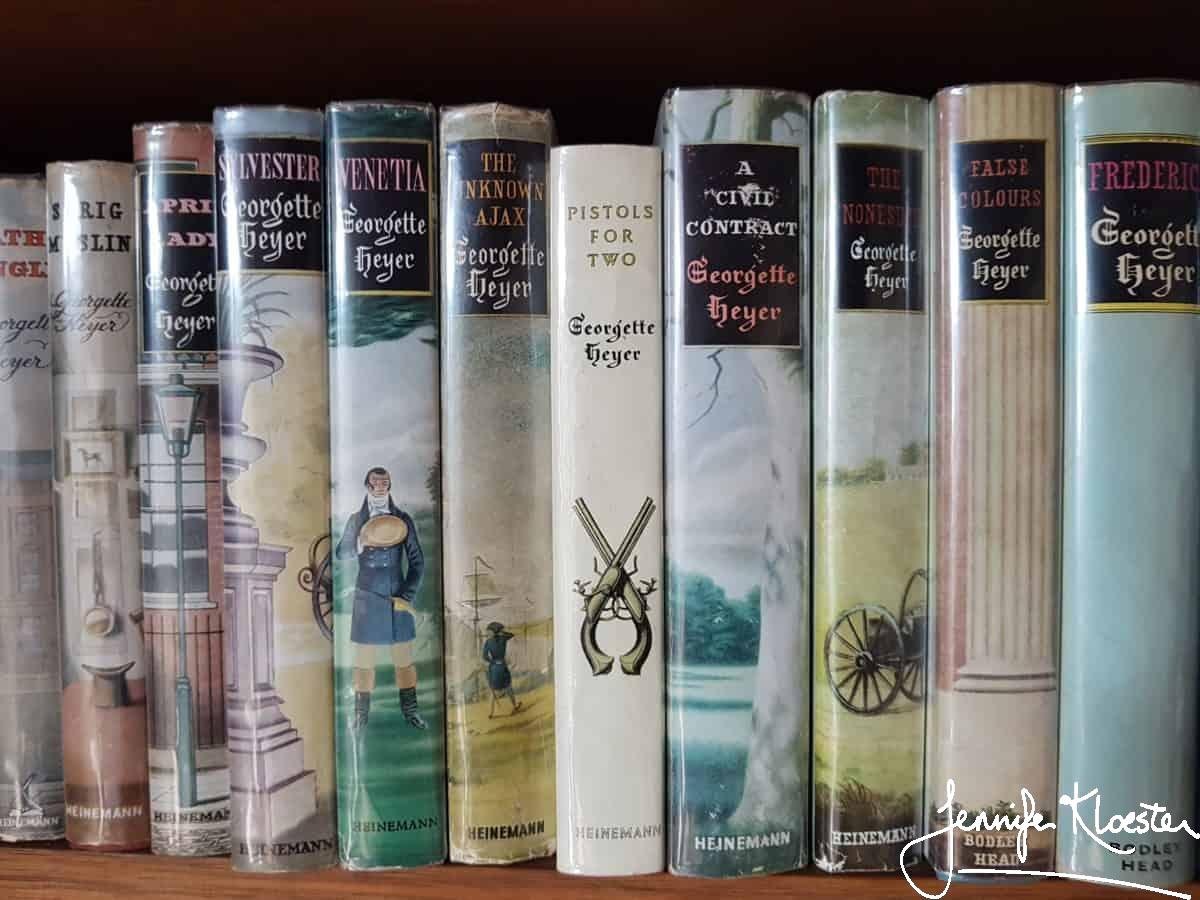
My first Heyer was one of her most famous novels, These Old Shades, and since its first publication in 1926 it has remained a firm favourite across five generations of readers. It was recommended to me by the woman who ran the tiny YWCA library in a remote town in the Papua New Guinea jungle. I’d never heard of Georgette Heyer but I took the book home and began reading. Little did I know that that book would mark the beginning of a life-changing love affair! I loved the story of Léonie and Justin Alastair, Duke of Avon, and in those years spent so far from home I read their story many times over. I also devoured every other Heyer novel in the library and on every R&R trip home I hunted the bookshops looking for any Georgette Heyer books I hadn’t yet read. I still have some of those original purchases, although many of them have fallen apart and have had to be replaced with lovely new editions. Over the years since then my favourite has shifted and changed as I have read and re-read my Heyer novels. I have often tried to pinpoint my favourite Heyer but must confess that it is no easy task when so many are so good.

A fascinating place, Papua New Guinea was a very different world and culture from the court of Louis XV 
The book that introduced me and so many other readers to Georgette Heyer.
For a long time my favourite was Cotillion with its four couples moving through an intricately-woven plot echoing the movements of the dance for which the novel is named. The book features Freddy Standen: kind, amiable and, perhaps surprisingly, one of my most beloved (along with his father, Lord Legerwood) characters in all of Heyerdom. My first reading of Cotillion was one of the first times that Georgette Heyer made me laugh out loud. The second time was reading the ending of The Unknown Ajax and that book soon became my new favourite Heyer. To this day, I need only to think of Lady Aurelia sweeping into the room and declaring herself a ‘mere female’ to laugh, and when I recall the scene with Hugo and Polyphant and poor Claude, prostrate and moaning on the couch, it always makes me chuckle.
However, the ending of The Grand Sophy with its Gothic manor house, oblivious poet, distracted Spaniard and flock of ducklings also makes me laugh aloud, as does the scene when Sophy kidnaps sanctimonious Eugenia Wraxton and drives her down St James’s Street past the gentlemen’s clubs. And then there’s Augustus Fawnhope, that beautiful young man with the face of an angel and the brain of a pea-goose and who is the perfect foil for the capable and attractive Lord Charlbury (excellent husband material) who you can’t help cheering for as he tries to navigate Sophy’s many schemes. This is a novel I have read over and over and for the longest time it was my absolute favourite.
Of course, I hadn’t yet read Sylvester, with the priceless Sir Nugent Fotherby and his tortuous encounter with young Edmund and his ‘Button’. Such is the brilliance of its plot and clever ending that I’m grinning as I write this. For a few years Sylvester was my favourite and the book I would choose to take to a desert island if I could only take one. The heroine, Phoebe, is such a heartfelt, beautifully-drawn character and there’s so much in Sylvester to move me. It also has a clever plotline based on a real-life event. Heyer often found inspiration in the historical realities of the Regency era and I suspect she very much enjoyed the story of Lady Caroline Lamb’s scandalous first novel, Glenarvon, for she put it to good use in Sylvester.

Heyer’s own personal favourite among her many novels was Friday’s Child, It’s an understandable choice because the plot is another of her clever, intricate creations and the characters are wonderful. From the first scene, where Sherry tries to woo the Incomparable, to the last, where he finally finds his Hero, the novel is populated with living, breathing people who remain with the reader long after the book is finished. Among them is Ferdy Fakenham, the man who would later inspired Heyer’s creation of Freddy in Cotillion. Ferdy almost steals the show in Friday’s Child over his determination to tell the hero about Nemesis, the goddess of retribution. For those in the know, the Nemesis joke will always provoke laughter.
Laughter is one of the hallmarks of the Georgette Heyer reading experience and it has long been one of my personal measures of how much I love her novels. And yet, as I have grown older and changed and (perhaps) acquired a little wisdom, her books also seem to have grown and changed. Books of hers that I liked well enough at first have now become more beloved and better understood. This, I believe is one of the reasons why Heyer’s novels endure. Her novels are not just witty and entertaining, they also each contain enduring truths about human nature. One book which I did not love when I was younger, but which has now become one of my all-time favourites, is A Civil Contract. Along with Venetia (another top five favourite), I believe A Civil Contract to be among Heyer’s greatest achievements. This quiet, elegantly-written novel, is Heyer at her most thoughtful, her most empathetic, her most perceptive. The relationship between Jenny Chawleigh – intelligent, pragmatic, loving – and Adam Deveril – kind, self-sacrificing, steadfast – is deeply moving and I have grown to love this book until it has become my favourite among her many wonderful novels.
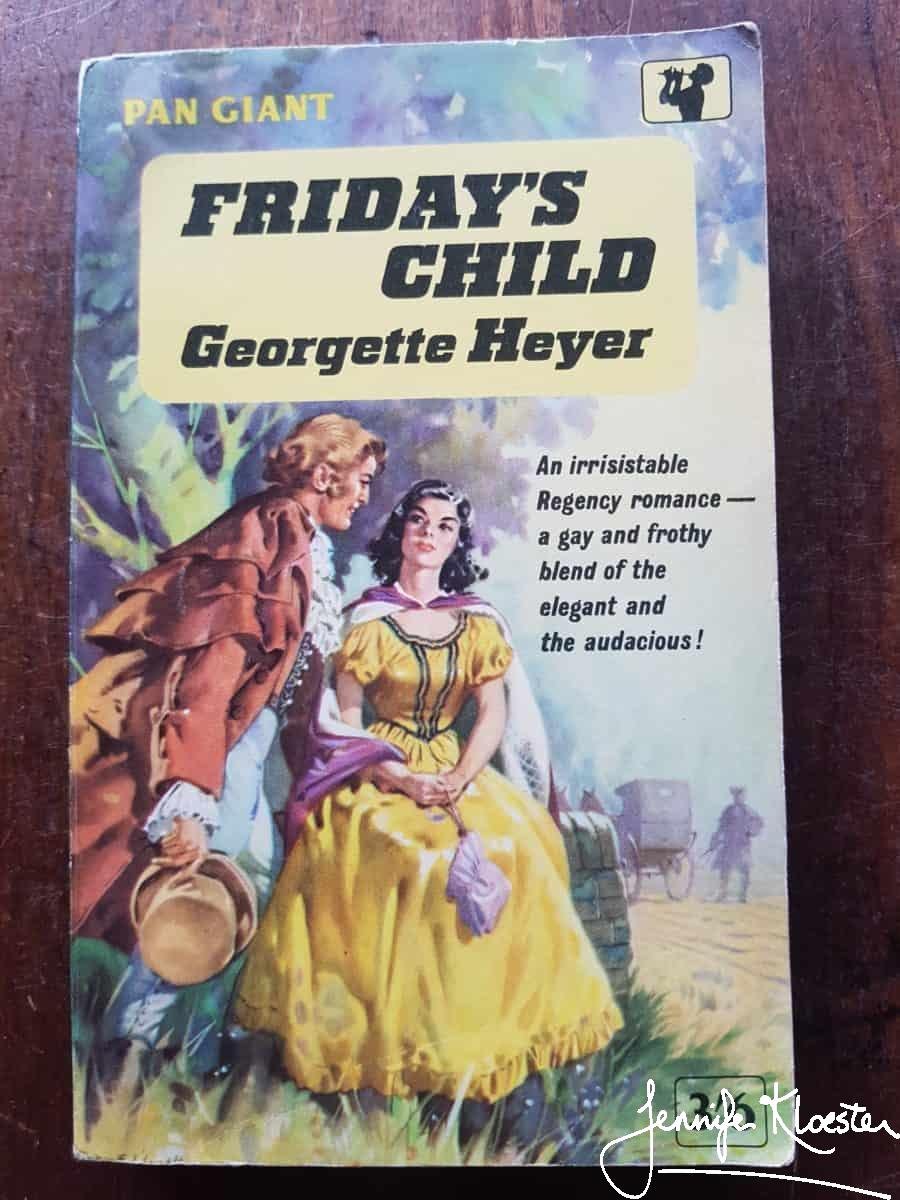
Georgette Heyer’s personal favourite 
One of Heyer’s most perceptive books. 
Like its heroine, The Quiet Gentleman is often overlooked but well worth reading.
Of course, as I write this I am also thinking of Drusilla in The Quiet Gentleman and how much I love her steady evolution into the heroine of the piece. And of Hester Theale, the unlikely but glorious heroine of Sprig Muslin. Then there’s Arabella and the riveting scene where Arabella entreats Mr Beaumaris to save Jemmy the climbing-boy, or Frederica when Charis enters the ball-room in her homemade dress and then later when the Marquis of Alverstoke endures days of privation at an inn in order to support the woman he loves, or Black Sheep with Miles Calverleigh and Dolly the Dasher, or The Foundling with the gormless Belinda and the young Duke of Sale, or Devil’s Cub when Mary shoots Vidal, or The Convenient Marriage with Horry’s stammer and her eyebrows.
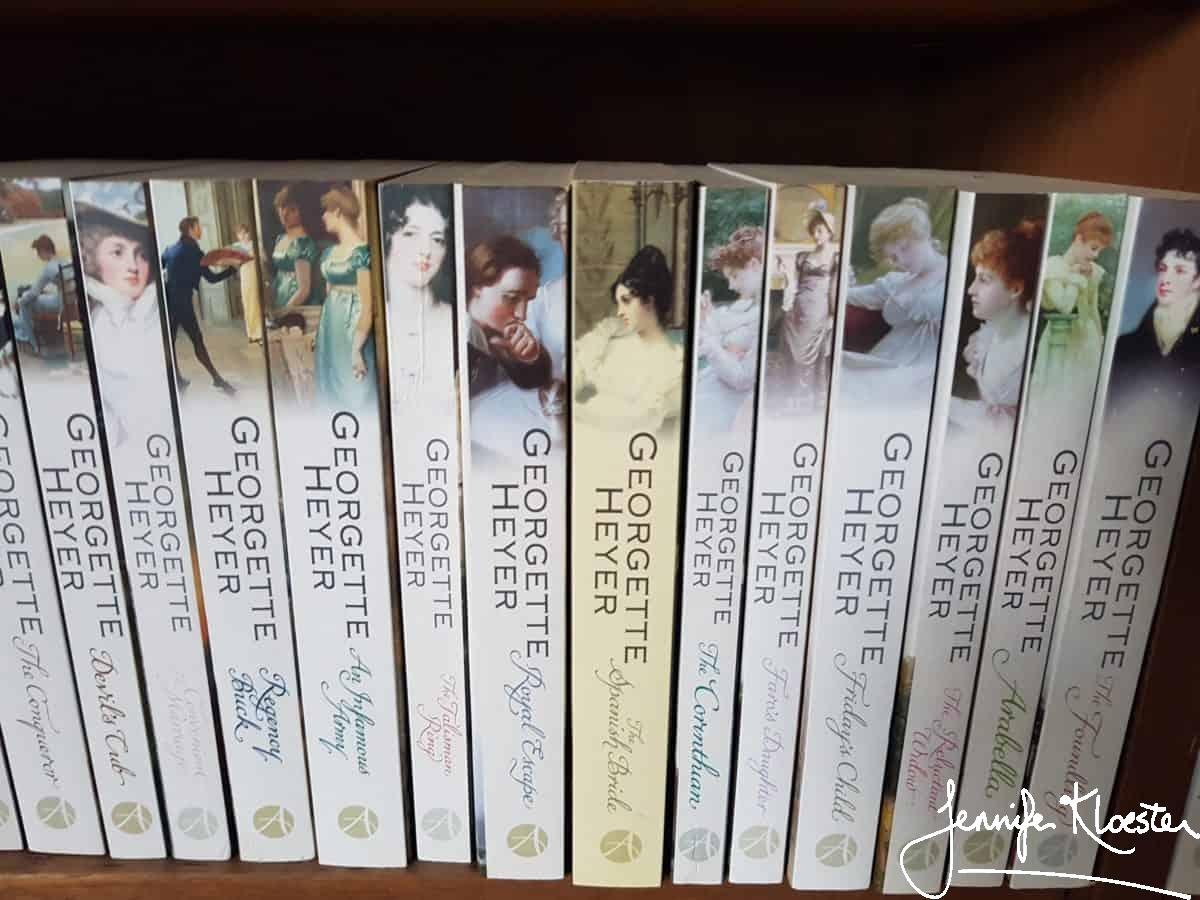
So many memorable moments, so many wonderful stories, and so many unforgettable characters. In the end, it’s impossible to choose just one favourite Georgette Heyer novel because so many of them are just so good. Their characters live for the reader, their plots are compelling, the dialogue sparkles, and there is joy and comfort and pure satisfaction between the covers. And I haven’t even told you about today’s favourite, The Talisman Ring…



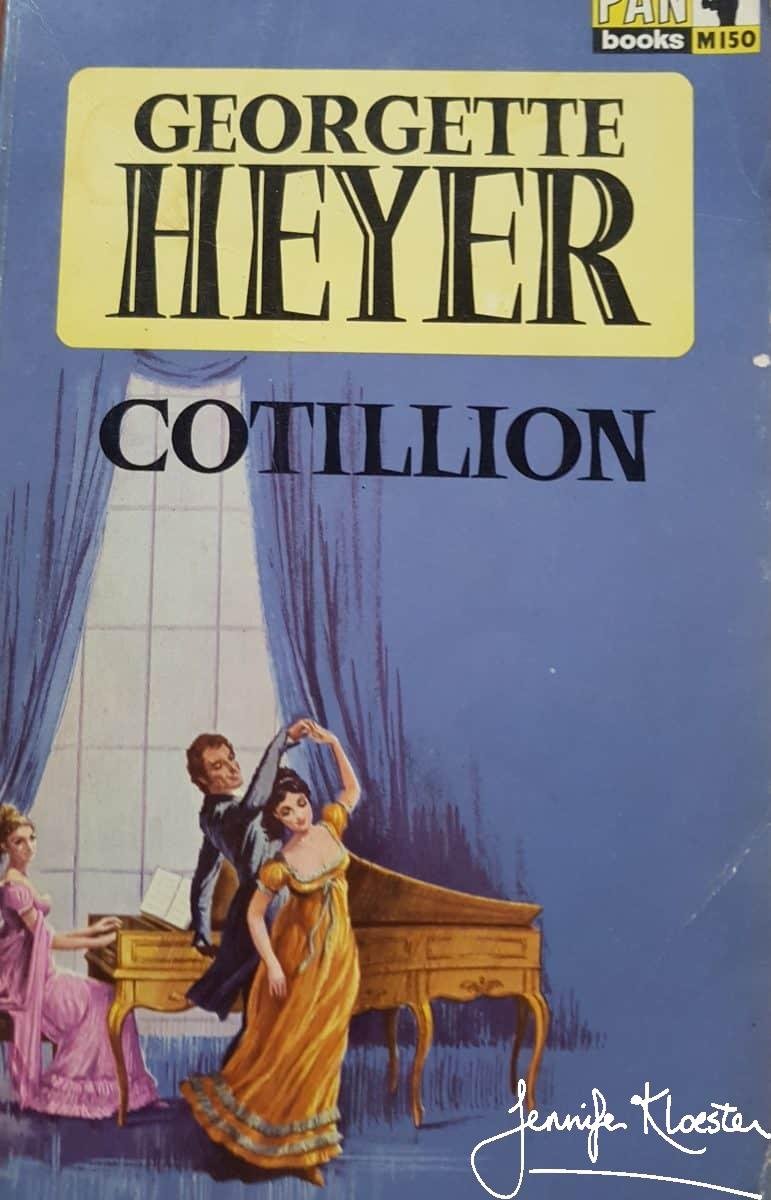
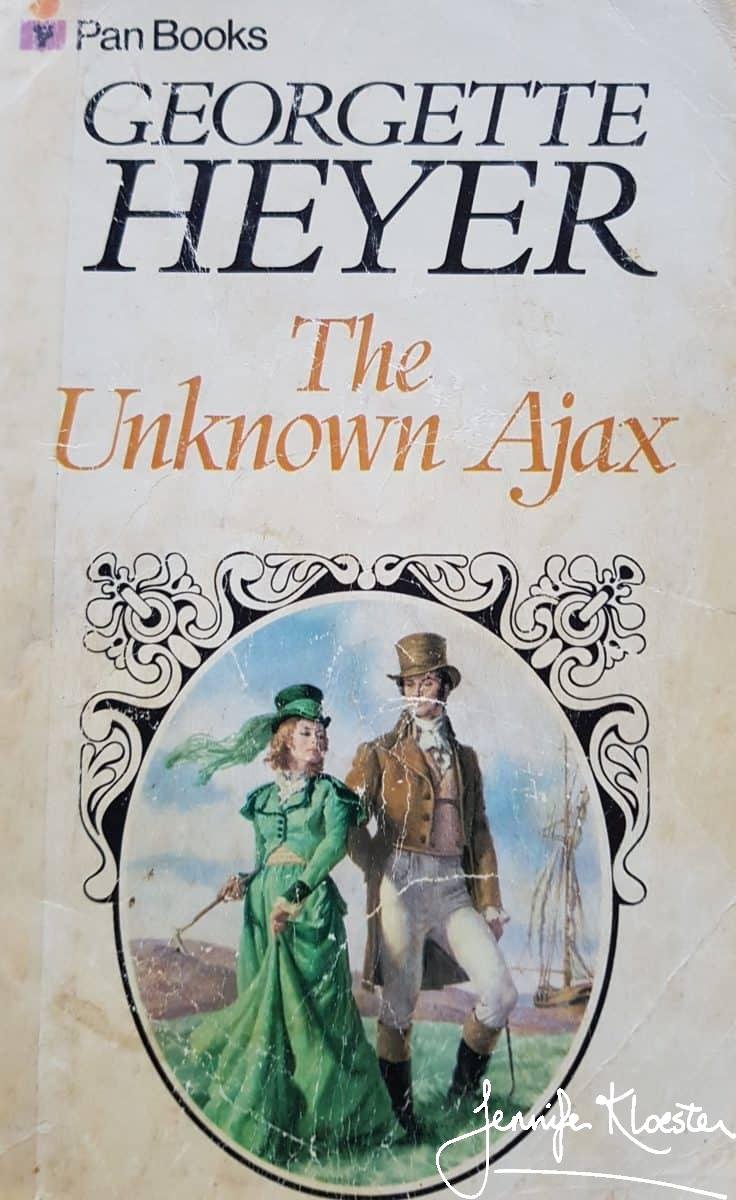



7 thoughts on “My favourite Georgette Heyer novel…”
I think the essence of many of Georgette’s novels is that the characters progress to come into their own. These Old Shades was my first, read at the age of 13. Avon starts with stirrings of boredom with his selfish life (even though he has made very sure his younger siblings cannot follow his example). The moment Leon falls into his arms is the equivalent of “suddenly a shot rang out”, and he is a very different man by the end of the book with all of his weaknesses turned to strengths. He gambles with other people’s life choices, He plots sedition against malice, and turns his reforming zeal ultimately on himself .
Hi Rwth, thanks so much for commenting. What a perceptive account of Heyer’s novels and of the Duke of Avon. I agree with you on all counts and continue to find her insight remarkable – especially at such a young age. I wish I had a tenth of her talent! The ways in which her character progress is one of the things I love about her books. The Unknown Ajax is a particular favourite as every single character, with the exception of Hugo and Lady Aurelia (who are already at their best I suspect :D), changes over the course of the book. By the end each of them has learned and as you so rightly say, their weaknesses are all turned to strengths. I’m so glad you found the post interesting. Thanks again for taking the time to respond. Best wishes, Jen.
My first Heyer was A Civil Contract. I read it when I was ten or eleven years old – took it from my mother’s shelf and fell totally in love with this wonderful world. I’m not sure how much I understood then and like Lydia, I had a school-girl admiration for the Beautiful Julia. Over time, I understood what a wonderfully nuanced portrayal Heyer gave here of her whole cast – everybody has good and problematic sides, nobody’s perfect and nobdy evil.
I’m so happy that Heyer finally receives the respect and attention she deserves. She’s truly an underestimated genius and I want to thank you for your contribution, your books, this webseite and all your activities on behalf of the creator of Bouncer and Nicky.
I love all her books but my favourite will always be Jenny’s – walking through Fontley with a cloth and a little bee’s wax.
Thank you for sharing your wonderful experience with Heyer and in particular A Civil Contract. I’m so impressed that you loved it at such a young age too! It is perhaps her most nuanced and deeply emotional novel and I totally agree with you about Jenny. I, too, love to think of her walking through Fontley with a cloth and a little beeswax. The work she did, the care and the understanding she shows for Adam, are all refelctive of her true feelings for him. Jenny’s love for him is one of the deepest in all Heyerdom! I like to think that he came to see it and to truly appreciate what she brought to his life as the years went by and they raised a family and made Fontley all that he hope it would be. You’re so right about Heyer’s characters – each with their foibles and virtues. I think Jonathan Chawleigh is one of her great achievements! I’m so glad that you found my website and took the time to comment. I truly appreciate it. Thank you Diotima. Warm wishes, Jen
My late wife left me a complete collection of Heyer books ( I think). Anyway she used to feed me her books on occasion and I still pick them up today to read.
I do have a request and it is `can someone please tell me which of the Heyer books features a Nabob?
Many thanks to anyone who can email me the answer.
Alan
Hi Alan, I think the book you’re thinking of is Black Sheep, which features the marvellous Miles Calverleigh, recently returned from India where he made his fortune (unbeknowns to his awful nephew, Stacey). Heyer does mention Nabobs along the way in other books, but Black Sheep has a Nabob as a main character. Hope that helps and thanks for posting. Jen
So glad I found this site. I have been reading Georgette Heyer for about 50 years now. She is my go-to author when I need some “comfort reading.” Like comfort food, it nourishes and comforts me. My most recent read was The Quiet Gentleman, which I haven’t read in many years.